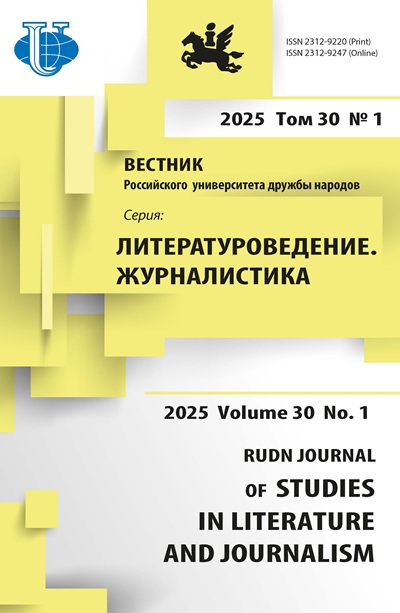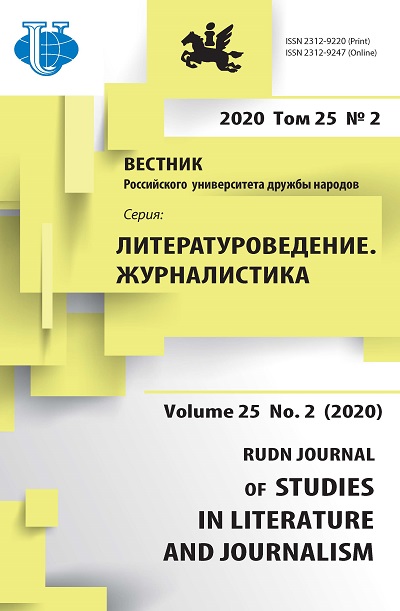Abstract
The article is devoted to the modern literary process in Kazakhstan, specially its Russian and Russian-speaking segment against the background of integration movements in the world and specific cultural processes in the post-Soviet space. It reveals how much the situation and part of literature created in Russian language in the region over the past decades has changed, how a different identity, the mentality of a different culture is expressed and how in turn this culture affects Russian-language texts. An attempt is made to trace the main trends in the development of modern Kazakhstani literature in Russian, in connection with which the works of I. Odegov, G. Doronin, H. Adibaev, D. Nakipov, A. Zhaksylykov and others are analyzed. It is concluded that the Russian language, even after losing its former status, remains in demand in the literature not only by ethnic Russians, but also by Kazakh bilinguals who are successfully experimenting with Turkisms. At the same time, Russian authors are concerned about the preservation of national identity, which motivates the appeal to classics and national folklore, while Kazakhs are more focused on the space of world literature.
















